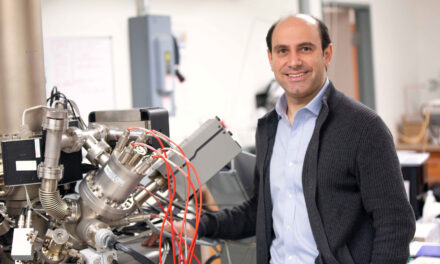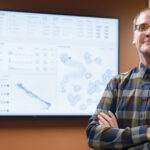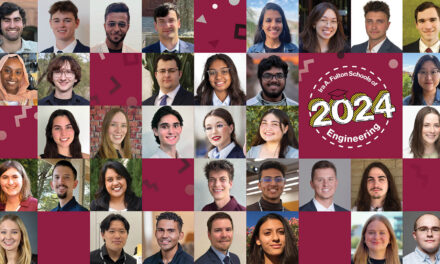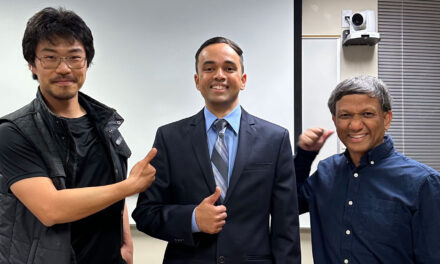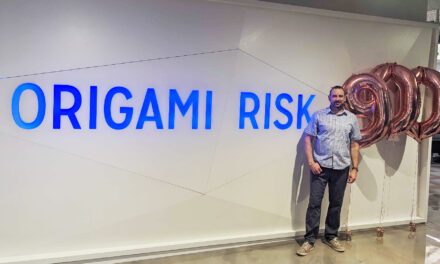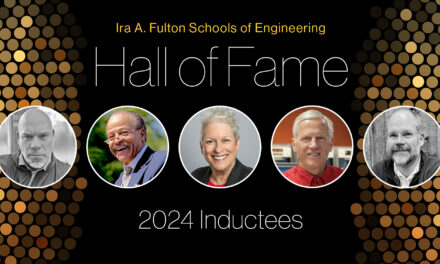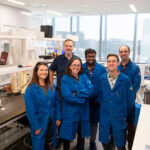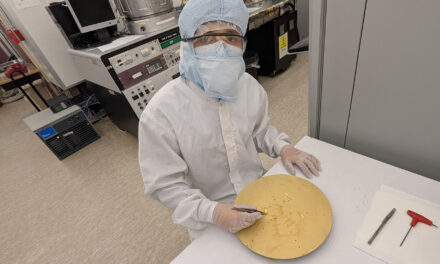
Mikhail Chester honored for work to protect infrastructure from extreme weather
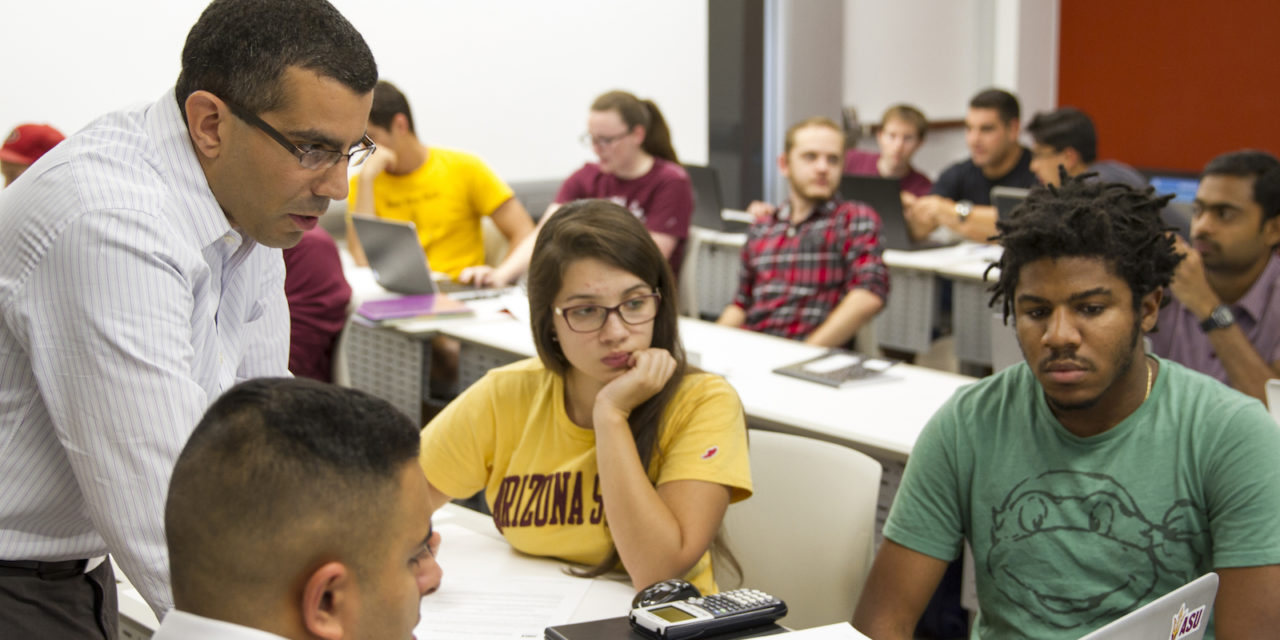
Above: Mikhail Chester (left) and his research of ways to adapt infrastructure to more severe and changing weather has been rewarded with the Walter L. Huber Civil Engineering Research Prize by the American Society of Civil Engineers. Photographer: Nora Skrodenis/ASU
Mikhail Chester’s research on preparing infrastructure for extreme events and climate change has been rewarded with the Walter L. Huber Civil Engineering Research Prize by the American Society of Civil Engineers, which recognizes notable achievements in civil engineering research.
Chester, an associate professor of civil, environmental and sustainable engineering in the Ira A. Fulton Schools of Engineering at Arizona State University, is researching ways to adapt infrastructure to more severe and changing weather.
“Many civil infrastructure systems are in need of major reinvestment,” says Chester. “Now, there is the added challenge of climate change. We will need to rehabilitate infrastructure while at the same adapting them for more severe weather.”
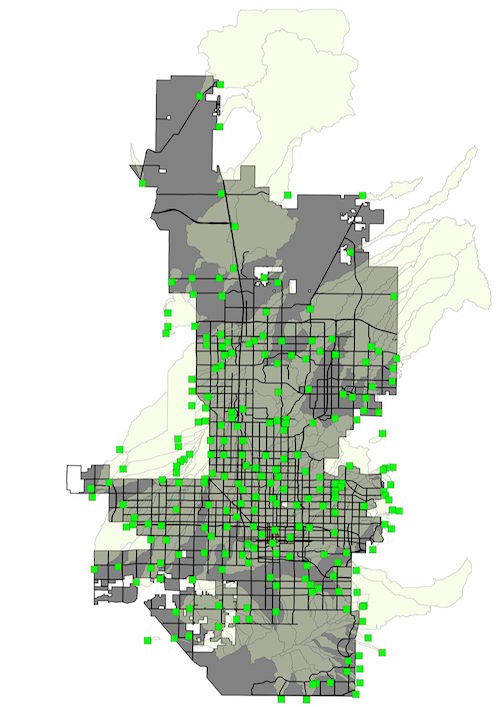
A flood model of the City of Phoenix showing watersheds, roadway network and potential flood nodes. Model courtesy of Mikhail Chester.
Chester says that his research tends to focus on the Southwest United States, specifically the region’s extreme heat and urban flooding hazards. His work centers on identifying how infrastructure is vulnerable to climate change, how failures propagate across infrastructure, and which strategies are most appropriate for protecting infrastructure and adapting to climate change.
“We’ve found that many infrastructure components have been designed for historical weather conditions and that we are now routinely exceeding these thresholds,” Chester says. “This means that infrastructure are vulnerable already, and are likely to become more vulnerable into the future as climate change becomes more severe. We are assessing a number of adaptation strategies from strengthening existing infrastructure to new forms of infrastructure where we manage the consequences of failure.”
Brad Allenby, a President’s Professor of civil, environmental and sustainable engineering, nominated Chester for the award noting that “[He] is quickly emerging as a recognized leader in the development of knowledge and strategies that will help design and manage urban infrastructure so that it is able to function efficiently and resiliently when faced with challenges such as environmental change, climate change adaptation and terrorist attack.”
“[Chester] is one of those rare professionals who is both rigorous and imaginative, able to navigate multiple domains in seeking the best solution possible,” says Allenby.
“There is a lot of discussion about sustainable and resilient infrastructure these days, but much of it is unfocused and naïve,” says Allenby. “He is unique in the way he is able to penetrate to the important issues, and view infrastructure as a real-world challenge.”
The Huber Prize is considered the highest level mid-career research prize in the field, and is awarded annually to only a few researchers across all civil engineering disciplines.
One of five recipients of the 2017 prize, Chester is the third civil, environmental and sustainable engineering faculty member from the Fulton Schools in the past four years to receive the prize following Professors Narayanan Neithalath and Enrique Vivoni in 2016 and 2014, respectively.
Chester will be presented the award during the ASCE’s annual convention, to be held October 8-11 in New Orleans.


